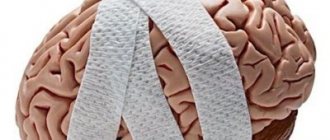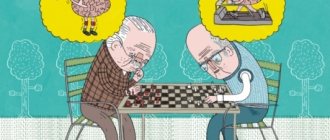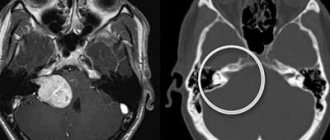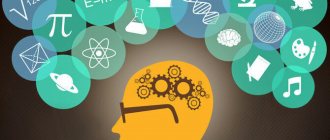Memory loss is a common complaint in both older and younger people. If such a complaint appears, it is important to consult a doctor as soon as possible to identify the causes and mechanisms of memory impairment. Identifying and eliminating the disease at the initial stages will allow you to avoid more severe disorders such as amnesia, encephalopathy, dementia, etc.
Objective memory loss and complaints of memory loss do not always accompany each other. Memory loss is the main cause of complaints about lapses. But, about 20% of such complaints are observed in those who do not have objective impairments in memory function. Why? The fact is that such a complaint can be observed with normal memory function in the following cases:
- Attention disturbance. With increased anxiety, asthenic syndrome, depression.
- Overwork due to lack of sleep, malnutrition, prolonged stress and overexertion.
- Large volume of processed information.
- Poisoning with alcohol or drugs.
Memory loss that occurs for the first time always attracts attention and causes anxiety. I forgot my keys and documents at home; made an appointment and forgot about it; I can’t remember individual episodes from yesterday - here is just a small list of complaints about poor memory.
Causes
The most common group of causes of memory impairment is organic damage to brain tissue - encephalopathy:
- Head injuries. Mechanical destruction of nerve cells and connections between them, especially the anterior parts of the brain.
- Atrophic processes in brain tissue. Degeneration and death of neurons. The most common variants are Alzheimer's disease and Pick's disease.
- Neoplasms inside the skull: tumors, cysts, foreign bodies, parasites.
- Overgrowth of connective tissue instead of neurons.
- Vascular disorders. Vascular atherosclerosis, hypertension, congenital pathology of vascular structure, vascular aneurysms. Previous strokes and cerebral infarctions.
- Impaired outflow of intracerebral fluid.
- Osteochondrosis of the cervical spine. Neck injuries. Damage to the vessels in the neck, through which the brain is fed.
- Diabetes. Hypoglycemia (drop in blood glucose levels).
- Long-term use of alcohol, drugs, sedatives and sleeping pills.
- Consequences of poisoning and neuroinfections.
- Epilepsy. Convulsive syndrome.
- ADHD, hypothyroidism, B vitamin deficiency, fasting.
Encephalopathy often becomes chronic and progressive. In the absence of adequate treatment, it can develop into dementia (dementia).
Another group of causes are reversible functional disorders:
- Depression. Anxiety disorders.
- Twilight stupefaction.
- Asthenia (overwork).
- Low blood pressure, lightheadedness.
- Sleepless night the night before.
These disorders have a favorable prognosis for complete memory recovery.
In teenagers
Memory loss is rare in adolescence. Basically, these are manifestations of diseases of internal organs or poisoning.
In young people
At a young age, the cause of memory impairment is often the reversible functional impairments described above. Complaints about memory loss are accompanied by anxiety and increased attention to this issue. People prone to hypochondria begin searching for information on the Internet about memory and brain diseases; they willingly turn to specialists and undergo examinations.
In the elderly
In old age (after 60 years), memory loss often has a cause in the form of organic brain damage, and is often not recognized. And even in severe cases, patients may not understand that their memory is grossly impaired. They are usually brought to doctors by their loved ones, who are the first to sound the alarm.
After alcohol
Blackout of memory during periods of alcohol intoxication is one of the symptoms of alcohol dependence and indicates the formation of alcoholism. This may also indicate the presence of encephalopathy. Normally, drinking alcohol should not turn off your memory; after a period of euphoria, deep sleep should occur.
Memory disorders
Hypomnesia is a decrease in the ability to store, remember, and reproduce information. It manifests itself as a deterioration in memory for names, addresses, dates and events. It is especially noticeable in conditions that require quick formulation of an answer. Mnestic deficit is associated primarily with events of the present, information from the past becomes poorer in details, sequence, order, and time reference are forgotten. As a rule, patients themselves are the first to notice the disorder. When reading a book, they need to periodically return to the previous paragraph to reconstruct the plot. To compensate for hypomnesia, they keep diaries, planners, use stickers and alarm clocks with reminders.
Amnesia is complete loss of memory. With the retrograde form, memories of events immediately preceding the disease are lost. Information about life over several days, months or years falls out. Earlier memories are preserved. Anterograde amnesia is characterized by a loss of information about situations that occurred after an acute period of illness or injury. Patients cannot remember what happened to them over the past few hours, days or weeks. With fixation amnesia, the ability to remember current information is lost.
The progressive form is manifested by the destruction of the memorization skill and the increasing depletion of information reserves. At first, patients forget situations and information received recently. Then the events of the distant past are erased from memory. In the end, information about the entire life lived is lost, including one’s own name, the faces of loved ones, episodes from youth and childhood. In selective, affectogenic, hysterical forms, memories of individual periods are erased - traumatic situations, negative experiences.
Qualitative memory disorders are called paramnesias. These include confabulations, cryptomnesia and echonesia. With confabulation, patients forget what actually happened and unintentionally replace them with fiction. The fantasies of patients may seem very plausible, associated with everyday, everyday situations. Sometimes they have a fantastic, unreal character - with the participation of aliens, angels, demons, with mystical reincarnations of the characters. Elderly patients are characterized by ecmnestic confabulations - the replacement of forgotten periods of life with information from childhood and adolescence. With cryptomnesia, patients consider events described in books, dreams, films or television programs to have actually been experienced in the past. Echonesia is the perception of current situations as having taken place before, repeating. A false memory arises.
Treatment
Depending on the identified causes and mechanisms of development, the doctor individually selects therapeutic methods for memory restoration. Most commonly used:
- Pharmacological treatment. Neurometabolic therapy. B vitamins in high doses.
- Biofeedback therapy.
- Physiotherapy.
- Massage and exercise therapy.
- Neurocorrectional classes and cognitive training.
- Psychotherapy.
In most cases, treatment is carried out at home (outpatient). If the condition is severe and the patient has no criticism, then examination and therapy are carried out in a specialized hospital.
Treatment of memory loss at the ROSA Clinic:
- Possibility of complete examination and intensive treatment in one place.
- It has its own hospital . We accept you even in serious condition.
- Consultations with experienced specialists in the field of memory disorders. Home visits are possible.
- We work around the clock.
What can affect memory loss? What are the causes of memory loss?
- Wrong lifestyle. People who smoke and drink alcohol often suffer from memory loss.
- Poor nutrition and lack of oxygen. For good brain function you need a balanced diet, vitamins and microelements.
- Anxiety, lack of sleep, changes in biological rhythm, physical and mental stress - all this can cause forgetfulness and absent-mindedness.
- You are not interested and you do not know how to use your ability to remember. If you weren't taught it as a child, do it now.
Prevention of memory loss
Bad mood - what to do and why it happens
What to do if there are already memory lapses? If they are not associated with serious diseases, you can do prevention yourself. What to do if memory deteriorates:
- Replenish the deficiency of vitamin B12 and thiamine. Group vitamins are found in large quantities in dairy products, liver, red meat and eggs. Fish and seafood are also rich in vitamin B12. Thiamine is found in legumes, potatoes and spinach. Bran and whole grain flour also contain thiamine;
- Improve your sleep. An adult should sleep at least 7 hours at night, when cell regeneration occurs. If a person sleeps little, he feels anxious, his attention deteriorates;
- Saturate the blood with oxygen: spend more time in the fresh air, engage in physical activity;
- Try new things. What a person already knows how to do does not force the hemispheres of the brain to work or the memory to strain. If a person's work involves logic and thinking, it is necessary to use the creative right hemisphere. You can draw or read literature.
Girl reading in nature
There are simple exercises that can improve memory and brain function:
- Remember more. Many people try not to overload their brains by writing an extra reminder or note. Memory works like muscles: the more load, the stronger it becomes. You can start with the simplest actions: remember the phone number, the name of the interlocutor, learn a poem. It is necessary to control not the quantity, but the quality of the information received;
- Shake up your brain. Simple actions such as walking around the room, finding something, or brushing your teeth should be performed with your eyes closed. At first it will be difficult, over time the brain will quickly turn on and adapt;
- Remember. You need to place an object in front of you that has details, for example, a vase or a painting. Look carefully for 1 minute, then close your eyes and remember all the details: color, shade, shape. The exercise can be repeated with auditory memory, trying to remember the words of the song;
- Focus on the little things. It is not necessary to set aside a separate time; this can be done on the way to work or home. You need to train your brain to notice small details around: a sign, an advertisement, a cat passing by;
- Find associations. It is easier to remember information by building an associative series. For example, the name of the interlocutor may be similar to the name of the actor.
The exercises can be performed by adults and young people. For children, it is advisable to turn them into a game, for example, invite the child to eat an apple with his eyes closed, and learn a rhyme together.
Note! Sometimes a person cannot remember something not because he has a bad memory, but because it is not interesting to him. You need to remember how information related to your favorite activity is remembered. If many terms, phrases and subtleties immediately pop up in your head, there are no serious problems with memory. This also applies to children: a small child will not do something that he does not like.
Symptoms
General symptoms for most species:
- confusion;
- forgetfulness;
- inability to recall previously occurring events or memorized information;
- social maladjustment;
- confusion;
- autism, nervous system rigidity.
If the disorders are caused by some kind of somatic or mental illness, they are accompanied by symptoms characteristic of them.
Violations of various higher mental functions often overlap, which is also manifested by various deviations. For example, memory impairment and… often go hand in hand.
- ... thinking: if a person does not have high mental abilities, it is difficult for him to remember information, this is especially evident in cases of dementia and mental retardation, when obvious memory problems are diagnosed;
- ... attention: unstable, slow or insufficient concentration leads to the fact that information is not remembered.
It must be borne in mind that each individual disorder is characterized by a specific clinical picture.
Other development courses
Speed reading in 30 days
Increase your reading speed by 2-3 times in 30 days. From 150-200 to 300-600 words per minute or from 400 to 800-1200 words per minute. The course uses traditional exercises for developing speed reading, techniques that speed up brain function, methods for progressively increasing reading speed, exercises for memorizing what has been read, the psychology of speed reading and the questions of course participants are discussed. Suitable for children and adults reading up to 5000 words per minute.
Sign up for a courseFree lesson
Verbal counting
Learn to quickly and correctly add, subtract, multiply, divide, square numbers, and even extract roots. I will teach you how to use easy techniques to simplify arithmetic operations. Each lesson contains new techniques, clear examples and useful tasks.
Sign up for a courseRead more
Brain fitness secrets
The brain, like the body, needs fitness. Physical exercise strengthens the body, mental exercise develops the brain. 30 days of useful exercises and educational games to develop memory, concentration, intelligence and speed reading will strengthen the brain, turning it into a supercomputer.
Sign up for a courseRead more
Nutrition
Health, quality of brain activity, appearance, mood - all this depends on what a person eats. Proper nutrition has a direct impact on every aspect of life. It is very important that it be varied and complete. If you regularly eat unhealthy food, then after a few days you may feel a deterioration in your condition, as well as a decrease in your memory level.
The presence in food of all components necessary for the body guarantees that a person’s memory will work harder. Proteins, fats and carbohydrates are responsible for the functioning of the brain, which once again proves their importance. The diet should also include:
- Vitamins (A, B, E);
- Iron;
- Iodine;
- Magnesium;
- Zinc.
They help not only maintain memory, but also eliminate forgetfulness, which can arise out of the blue. But what foods exactly should you eat?
Meat, fish, seafood
According to doctors, upsetting vegetarians, it is necessary to eat meat. It is beneficial for the whole body. Meat improves memory because... it contains a large number of components that have a positive effect on the brain. The most useful: chicken, beef, veal liver. They contain a lot of vitamin B and iron, which are so necessary for the body.
Fish, especially sea fish, is rich in Omega-3 acid, which has a positive effect on brain function and the ability to remember any information. Equally important is seafood, which also has a major impact on overall health. You can get the maximum benefit from salmon, tuna, herring, oysters, shrimp, and mussels.
Vegetables
Cabbage and spinach contain a large amount of vitamins and acids that will help strengthen memory. They also reduce the risk of developing Alzheimer's disease. Tomatoes will have a similar effect due to the presence of lycopene. It removes dangerous radicals from the body, which prevents damage to neurons responsible for memory.
Garlic and onions are also very effective in improving attention and memory. They normalize blood circulation and help reduce the likelihood of deterioration in brain function in the future. You can use them at any age, limiting yourself to a couple of cloves or rings. It is especially important for older people to consume these vegetables.
Fruits, berries
Loving sweet fruits or berries is much healthier than many people think. They protect neurons, normalize blood circulation, saturate the body with all the necessary vitamins and minerals, help awaken interest in the world around them, and also increase learning ability, which makes them especially important for preschool children and adolescents.
Particular attention should be paid to the following fruits and berries:
- Red apples;
- Citrus fruits (lemons, oranges);
- Bananas;
- Blueberry;
- Blueberry;
- Grape;
- Black currant.
They can be consumed every day. However, it is worth considering that an excess of some components can cause discomfort or minor health problems.
It is also useful to include nuts, honey, eggs, milk, coffee, and sage tea in your diet in reasonable quantities.
Symptoms indicating memory impairment
Memory bells that should alert you:
- forgetfulness, manifested in everyday matters;
- difficulty focusing on a specific object;
- problems with learning and remembering information, with its reproduction;
- disruption of the thought process, loss of logical connections, loss of mental acuity;
- confusion and uncertainty;
- autism, social maladjustment;
- foggy consciousness.
Often, memory problems begin against the background of deteriorating general health. However, they can be combined:
- with headaches;
- with pressure surges;
- with hand tremors;
- with muscle spasms;
- with dizziness;
- with a decrease in visual acuity.
If, in the presence of 2-3 of the above problems, memory has decreased, you should urgently seek medical help, since these symptoms signal rapidly developing brain pathologies.
The child has a bad memory. What to do if a child has a bad memory?
Some children pick up everything on the fly from birth, while others have to practice to achieve certain results.
Throughout a child’s life, everyone teaches: educators, teachers, parents. Parents play an important role in the education and development of a child; a lot depends on them. You can always help a child in any situation and every day.
Bad memory what to do?
A person is by nature very smart and developed, and in order for him to remain this way throughout his life, he must develop himself every day and lead a healthy lifestyle.
You can develop your memory and attentiveness at any time, even if you have no time.
From birth to old age, develop your memory. Some people think that if they retire, then they don’t need to engage in self-development. No, you must always practice. Children spend three months on vacation and also think that they don’t have to study. We need to study even in the summer, develop ourselves, read books.
Very often, pensioners forget everything on the go, they put the kettle on to boil and forgot, they went to the store and forgot what they needed to buy, they put the jacket down and don’t remember where.
Many people are given a good memory from birth, and some need to try to develop it.
If you train your memory and attention every day, you can achieve good results.
My child has a bad memory, what should I do?
- Walk with your child at any time of the year, play your favorite sports or simply spend time actively in nature. The brain receives oxygen during walks; this is very important for improving a child’s memory.
- Proper nutrition is the key to healthy mental development. Always include in your menu: vegetables, fruits, herbs, dried fruits, nuts.
- Don't overload your child with activities. If you see that the child is tired, give him a rest, he won’t remember anything anyway. Work with your child in the morning; after sleep, the child learns new information well. Be sure to read a book to him in the evening.
- Develop your child's memory and attention. Include exercises to develop memory and attention in your classes. Don't scold your child if he doesn't succeed.
Diagnostics
To diagnose memory disorders, various techniques are used:
- taking anamnesis;
- electroencephalogram (EEG);
- computed tomography (CT);
- magnetic resonance imaging (MRI);
- general tests and ultrasound diagnostics to identify the somatic disease that caused the disorders.
Psychological tests have remained the main diagnostic method for many years:
- to identify violations in the checkpoint;
- pictograms;
- 10 word method;
- textual criticism and many others.
In each individual case, the specialist himself decides which methods to use to make a more accurate diagnosis.











